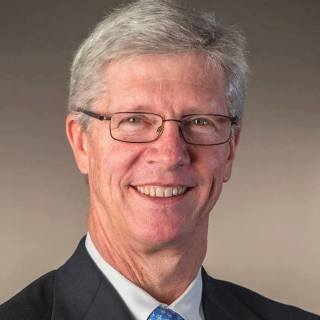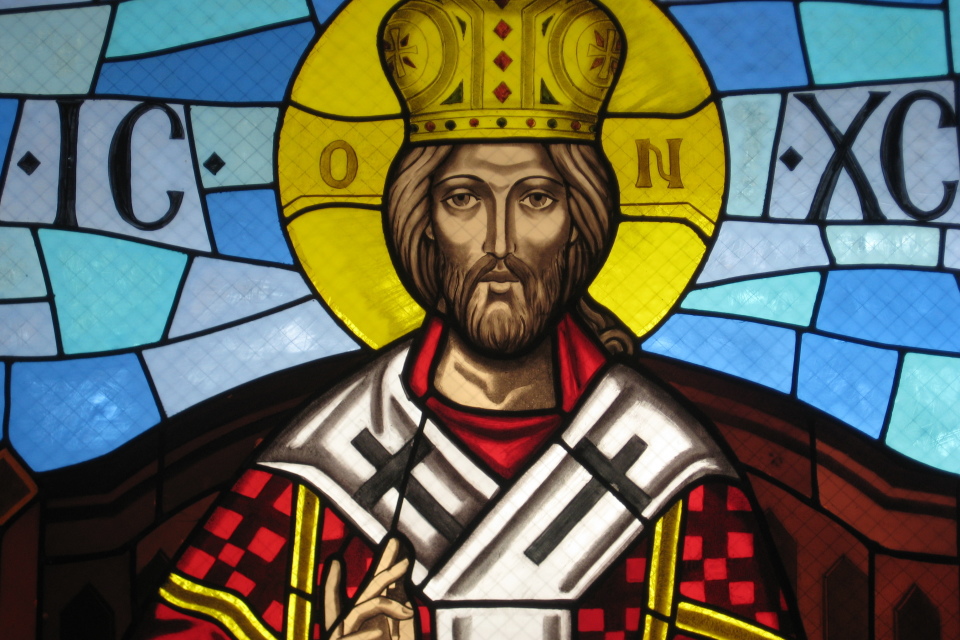Weekly Preaching: Christ the King Sunday
Christ the King usually falls before Thanksgiving, but this year it follows. Three great texts present themselves to the preacher.
Ezekiel 34:11-24 presents pastoral (as in out in the fields!) images of shepherding. Israel, along with other Ancient Near Eastern cultures, often depicted their leaders as shepherds. We overdo the Oh, poor, humble shepherds notion. In that culture, flocks could number in the thousands, requiring immense administrative skill.
It is lovely to ponder the image that God, Israel’s ultimate shepherd, “will search for my lost sheep” — the basis of one of Jesus’ greatest parables. The tenderness of this shepherd is evident: seeking good pasture, arranging for the sheep to lie down and rest, binding up the crippled sheep (instead of just leaving them), all summarized by the homiletically pregnant “I will feed them in justice.” Ah, justice, mishpat in Hebrew, the kind of biblical justice that says everybody will be cared for; that’s the just society. This is the kind of realm where Christ is king; he is this kind of King.
Sometimes I like, in preaching, to imagine things we don’t know about. I try to picture the shepherds in Bethlehem, the ones who heard the angelic choir — a month before Jesus was born. One more dull night, then another, with no idea what was coming, or if anything was coming at all. I wonder how much we live like them... bored, stuck, and yet there is something marvelous on the horizon we can’t predict or detect.
Then Ezekiel takes a harsher turn, with sheep and goats (or fat and lean — even worse!) being differentiated, judged, treated shabbily even if fairly. Of course, our Gospel reading portrays the very same scenario. There is judgment.
Ezekiel’s other unanticipated turn is questioned by Robert Jenson: “Does not Ezekiel contradict himself? He has made much of how great it will be when the Lord himself takes over from the earthly shepherds. But suddenly David is to be the shepherd.” Theologically, “the Good Shepherd must be at once God and a descendent of David. And that is exactly what classical Christology says of Jesus the Christ.”
Lest you think he is imposing a later Christian reading on an Israelite text, he offers a semi-snarky rejoinder: “Our reading is alien to the text only if the Christian doctrines adduced are not true.” Vintage Jenson. Preacher beware, though: Don’t rob the OT of its specificity, or from our friends the Jews, for whom this is their Scripture. The text can stand on its own.
Turning to Ephesians 1:15-23. What a dense, stunning, rich marvel this is; you could preach a long series on this text. Turns out, in Greek it is one very, very long single sentence of one hundred and sixty-nine words! The NRSV sticks three periods in, but it’s just one sentence. I dare you to diagram that sentence!
Gratitude is a dominant theme, fitting for this week of Thanksgiving. Again, what is the Christian to be grateful for? A boatload of food and a comfy den? Cowboys’ football? Or what we hear of someone’s faith? And the love of the saints?
Paul is reporting of his praying. Do we have a gimme-list, a health update as our praying? Paul prays for “wisdom and revelation” and that “the eyes of your heart will be enlightened.” You might turn to Antoine de Saint-Exupéry’s The Little Prince: “It is only with the heart that one can see rightly; what is essential is invisible to the eye.” I am more drawn to this: St. Francis of Assisi came to be St. Francis because he prayed a single prayer, over and over, day after day, while kneeling before a crucifix in the small, crumbling church San Damiano:
Most high, glorious God, enlighten the darkness of my heart, and give me, Lord, correct faith, firm hope, perfect charity, wisdom and perception, that I may do what is truly your most holy will.
We need enlightenment and wisdom; Francis’s dream in this prayer was that he might not just know but actually do God’s most holy will. In Eph. 1, Paul’s purpose is “that you may know what is the hope to which he has called you.” Three things about hope:
- It is not a shriveled up thing, but something too grand for the mind to comprehend. Allen Verhey and Joseph Harvard (in that Belief theological commentary seires), noting the primal theme of hope in this overwhelming spillage of verbiage, suggest “This hope is immeasurable — and almost unspeakable. But Paul speaks it anyway.”
- Hope, for Paul, isn’t a spiritual attitude. Markus Barth, in his massive and rich Anchor Bible commentary, explains: “When Ephesians speaks of hope, the emphasis lies not so much on the mood of the person hoping as on the substance or subject matter of expectation. Hope is equated with the thing hoped for.”
- I love Christopher Lasch’s impeccable distinction between hope and optimism. “Hope implies a deep-seated trust in life that appears absurd to those who lack it... The worst is what the hopeful are prepared for... Improvidence, a blind faith that things will somehow work out for the best, furnishes a poor substitute for the disposition to see things through even when they don’t.” And notice how Paul deftly hinges hope to calling — almost as if calling comes first. The called are those who have hope. Because you’re called, you have hope. Getting it backwards leaves people trying to figure God and their personal future out before listening to anything vocational. That’s inverted, from Paul’s point of view.
All preachers would be wise to spend time with Walter Wink (Naming the Powers, Unmasking the Powers, and Engaging the Powers), or others who have probed this notion of “principalities and powers.” We read the world too thinly if we just see politicians and armies and social trends. There are cosmic powers behind it all, in it all, and tugging on you, me and the church at every moment.
And speaking of the church: clearly Paul has zero interest in personal salvation. We have hope and are called as members of Christ’s church. What a beautiful, fitting and compelling image of our life together! Paul explicates this more fully in 1 Corinthians, of course. But the Body is right here in Ephesians. We may humbly recall Martin Luther King’s eloquent assessment in his letter from the Birmingham jail: “I see the church as the body of Christ. But oh, how we have blemished and scarred that body through social neglect and fear of being nonconformist.”
And then finally we come to Matthew 25:31-46. Jesus’ last sermon. Must be important. Salvation, for Jesus, evidently is way more or even far different from responding emotionally at a revival, or saying Yes at Confirmation, or declaring I was born again on June 18. There is doing, action, a whole lifestyle — not of “goodness,” but the harder yet more joyful work of God’s kingdom.
To make religion into something else was questioned by Martin Luther in #45 of his 95 theses that got so much attention last month: “Christians should be taught that those who see someone in need and pass by, and then give money for indulgences, are not purchasing for themselves the Pope’s indulgences, but rather God’s anger.”
Mother Teresa made a life out of taking this passage seriously, and actually doing it. I recall a minister I met when I was young: Gordon Weekley, once a prominent Baptist pastor in Charlotte who succumbed to prescription medication abuse, then amphetamines, and wound up on the streets. But then, he was miraculously cured and engaged in stunningly transformative ministry to the addicted and homeless.
I wonder, in preaching, if I could find somebody near me who is doing each thing Jesus suggests. Whom do I know who visits the prison, and does he have a story? Whom do I know who welcomes strangers? People need to see these things in reality. I wonder if we have a set of signups, real live opportunities? This week, come with us to the local prison Tuesday at four; this week, we are delivering food to the women at the shelter; this week, we are carpooling to the mosque for a hummus-making class with new Muslim friends. Something…
This article originally appeared on the author's blog. Reprinted with permission.

